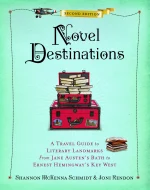After recommending two weeks ago that each of us should accumulate roughly 25 times our uncovered annual expenses in retirement savings, we felt obligated to offer up some money saving suggestions.
- Downsize the house. Probably the worst financial advice I ever heard is the conventional wisdom to buy the largest house you can afford. Even before the housing market collapse, this was terrible advice. A larger house is more expensive in every way. Many of these expenses continue long after the mortgage is repaid. Property taxes, insurance, utilities, furnishings, maintenance, landscaping and possibly cleaning expenses are all higher with larger homes. Keeping housing modest can easily save you tens, if not hundreds, of thousands of dollars.
- @$%# the Joneses. Wear your frugality with pride. Let the Jones’ spend their lives acquiring things. Be happy with the knowledge that you’re buying something far more important with your savings: Freedom.
- Drop the insurance.There are only two reasons to have insurance: 1) It is legally required 2) The potential uninsured losses would be financially devastating. If you carry insurance that doesn’t fit in either of those two categories, it’s time to consider making a change.Every insurance company in the world charges a price equal to the amount it expects you to file in claims plus a premium. They’re exceptionally good at estimating your future claims, too. If they weren’t, they’d go out of business. Don’t expect to come out ahead on insurance.Our advice is to pocket the premium the insurance company collects and self insure most things. If you can afford a $200 car repair, for example, don’t pay an insurance company to cover that risk. Raise your deductible or, if you can manage the full cost of an accident, drop collision coverage all together. The same is true with every insurance policy on the market.
Health insurance is a topic that requires its own article, but deserves a special mention. Health care costs in the U.S. can be so expensive that very few people are wealthy enough to self insure. Catastrophic coverage that maintains your HIPAA rights is an absolute necessity for U.S. Citizens. In our view, too many fulltime travelers take unacceptable risks by not having proper health insurance.
- Shop the insurance. “15 minutes can save you 15% on car insurance” is a memorable tagline. It also happens to be true. If it’s been several years since you’ve gotten new insurance quotes from competing suppliers you’re likely spending too much on insurance. For any policy you don’t drop completely, call around for a better deal.
- Fire your financial planner. Have you ever wondered why Wall Street executives are so rich? It’s because everyone overpays for financial services. Everyone! Most folks don’t even know what they’re paying because so many of the costs are buried in financial products. Our advice is to pick up a copy of William Bernstein’s great book, The Four Pillars of Investing, and learn to manage your own money.
- Vanguard it. Taken as a whole, mutual funds with higher expenses (typically actively managed funds) do not outperform their lower cost competitors (typically index funds). In fact, over long periods of time the exact opposite has proven true. Swap out high cost funds for low cost ETFs (Exchange Traded Funds) and index fund, like those offered by Vanguard. This move could save you thousands of dollars per year that you may not even realize you’re spending. (Disclosure: We’re customers of Vanguard but have no other affiliation with the company.)
- Catch the match. If your employer provides a matching contribution to your 401(k) take advantage of that free money. Foregoing the match is like turning down a pay raise. Who would do that? A surprisingly large number of people, that’s who.
- Ask for a raise. Speaking of raises, ask for one! While this isn’t exactly a tip for saving money, it is a simple way to put more money in your pocket. Always remember that your employer’s objective isn’t to pay you what you’re worth, it’s to pay the minimum amount necessary to keep you on the job and productive. If they think you’re happy at your current salary, they have no incentive to give you more, even if you deserve it. (Use some judgment here. If your department is downsizing and five of your underworked colleagues can do your job, now is probably not the right time to ask for a raise. Focus instead on being one of those five who avoids the scrap heap.)
- Know what you’re worth. You won’t earn what your worth if you don’t know what you’re worth. Even if you’re happy with your current job, explore alternatives and probe the job market. The easiest way to get a raise or promotion is to walk in to the boss’ office with a competing job offer.
- Learn to cook. Eating in is better for both your personal and financial health. Shave some bucks and some pounds by preparing your own meals.
- Pay off credit cards. Paying 19% or more in annual interest to borrow money is insane. High credit card interest rates can easily double the cost of items. Don’t do it.
- Use up what you buy. If what you have still does the job, why replace it? This is especially true for big ticket items like automobiles, which some people churn every few years, but is also true for fashion, perishables and just about everything else. Wear the clothes in your closet and plan meals around what is already in the fridge. Waste not, want not.
- Ditch the landline. I know you have a cell phone. Do you really need the landline too?
- Junk the gym. Take up running, walking, calisthenics, or any number of other free exercise options. If you use the gym regularly, it can be a worthwhile personal investment. If you haven’t seen the inside of the health club this month, cut your losses and run.
- Why so many channels? The average U.S. cable bill is $75 per month; mostly for channels we never watch. Meanwhile, high quality digital broadcast is available for free in many parts of the country (we know because we’ve been there). Shows airing on non-broadcast stations can often be streamed to your television for free from sites like Hulu (we use an HDMI cable to connect our computer and television). Supplement broadcast basics and streamed T.V. with an occasional $1 Redbox movie.
- Buy Generic. The only difference we typically see between generic and name-brand products is the price.
- Buy used. Save thousands on cars and RVs by choosing second hand vehicles.
- It’s not really saving if you spent money. Getting a 50% discount on a $40 shirt you don’t need isn’t saving $20, it’s spending $20. It doesn’t matter how good the deal looks, if you don’t need it, don’t buy it.
- Use the library. E-readers are cool and convenient but the library is still free. For us, free normally wins.
- Use the 25x principal. It’s surprising how quickly the desire for things goes away when you multiply their annual cost by a factor of 25.
What did we forget? Let us know by sharing your best money saving tips.





















Brilliant! I feel richer already! Thanks, guys – will share with my friends too!
LikeLike
Thanks for sharing – it’s the currency bloggers are paid in. 😉
LikeLike
Thank you for advises! Every little helps! I always have a few enveloped where I put my holiday cash… even a few pounds a month makes a difference. If I know I’ll go home for holiday I start saving 6 months in advance, this way I don’t need to stress the last minute 😀 Last spring I nearly went crazy coz I did lots of travelling, not mentioning my 30th birthday and moving house expenses! I think I had 6 envelopes! And I significantly reduced my phone bills by changing my contract 😀 I also started cycling instead of using tube, this saves me about £100 per month and therefore I ditched my gym which saves me £50 per month: D I cook at home and bring my lunch to work, that’s like £5 a day = £25 a week! 😀
LikeLike
Swapping the car for a bike is a good one I should have included – it also fits with this post from a few weeks back: Walking Distance
LikeLike
I’d add “Little things add up” and I think you might have covered this in your previous post. I don’t drink coffee but I know a lot of people who do, and if they’re paying $5 or even $10 a DAY for their habit, it seems like too much. That’s $25 – $50 bucks a week they could be saving.
The same goes for “habit” items like gum, candy, alcohol or (god forbid) cigarettes. I don’t smoke, but for people that do not only are they destroying their health (see your reference to health insurance costs above) but they are destroying their wallets too. In terms of drinking, maybe having a splurge and buying a bottle of wine once a month is good rather than paying by the glass in a bar or restaurant, or drinking more frequently with meals at home.
LikeLike
Yup, little things can make a big difference.
We do have our indulgences too, though. We’re guilty of liking our drink, perhaps more than we should. LOL The trick, I think, is not to always deny yourself, but to figure out which things really make your life better and then find a place for them within your budget – perhaps by foregoing something else you don’t value as highly.
LikeLike
If the world lived within its means, we wouldn’t be in the mess we’re in globally.
All common sense.
🙂
LikeLike
Too true. Too true.
LikeLike
Excellent advice on all counts. Well done!!
LikeLike
26. If you’re considering divorce – try & work it out – this will cost you more than the entire list 😉
LikeLike
Oh yes. Few things can wreck your financial life as quickly and as throughly as divorce. And married people earn more on average than their single counterparts, so there is that benefit too.
LikeLike
Great tips! I have used a lot of these myself and learned some new tips.
LikeLike
Awesome. Glad you found it helpful.
LikeLike
Words of wisdom, many of which we practiced to get where we are. There are an awfully lot of people working who could be relaxing if they did these things.
LikeLike
Agreed. We’re hoping to help those people find their way.
LikeLike
Your tips and advice are so timely for people are over the world.
LikeLike
Great tips! Definitely going to start following them. I feel like I’m always scrounging around for extra cash. My biggest downfall is NYC rent and restaurants.
LikeLike
NYC rent can be a budget buster. Thankfully rents are half as much just over the river in sections of NJ. It doesn’t have the same cache, but the discounts are worth checking out.
LikeLike
Did you read ‘The Investor’s Manifesto’ by Bernstein? It seems more topically after the cirisis in 2008.
greets from germany
LikeLike
I have not read “The Investor’s Manifesto” but Bernstein’s stuff is generally some of the best out there. From the table of contents it looks like this title mostly includes material from his earlier books, “4 Pillars” and “The Intelligent Asset Allocator.” But that is good material for anyone not acquainted with it.
Thanks,
Brian
LikeLike